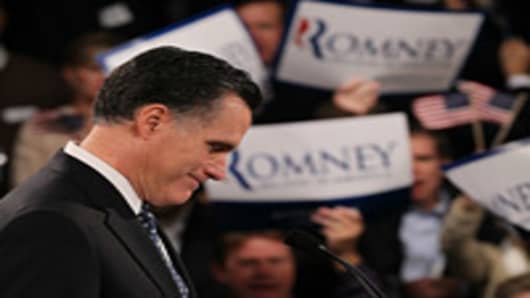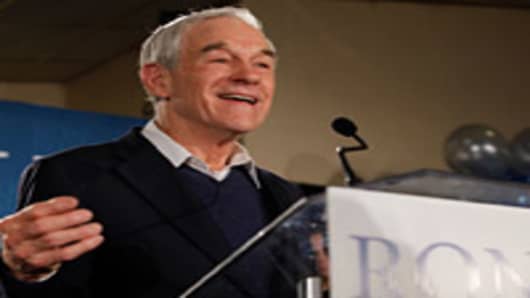Gary L. Bauer, president of American Values and one of the organizers, said Tuesday in an interview, “We’re not forming some alliance to stop somebody else that’s competing for the nomination,” adding, “the only person in that room the people want to stop is Barack Obama from having a second term.”
Mr. Bauer, it happens, will be supporting Mr. Santorum, whom he endorsed and campaigned with last week. But Mr. Bauer said the meeting would include advocates “for all of the candidates, including Romney.” Mr. Romney’s advocates are expected to be working the room aggressively.
Yet if evangelical voters hold sway in South Carolina, so does the Tea Party, for which resistance to Mr. Obama’s health care overhaul — so much like the one Mr. Romney signed into law in Massachusetts as governor — was a main ingredient. Senator Jim DeMint of South Carolina was a leading advocate for the movement on Capitol Hill and in the 2010 elections. Mr. DeMint will probably not be repeating his endorsement of Mr. Romney from 2008, but spoke approvingly of him on “The Mark Levin Show” on Tuesday night.
A onetime Tea Party favorite, Gov. Nikki R. Haley of South Carolina, has endorsed him, a move that has puzzled and angered many in her base. Her endorsement may hurt her as much as it helps Mr. Romney, but it also highlights how small-government conservatives as well as evangelicals continue to have their doubts about Mr. Romney.
Despite the Romney campaign’s optimism that he has overcome much of the suspicion among evangelicals based on his faith and some of his former views on issues like abortion, those positions are likely to get a new focus as he comes to South Carolina with the nomination in sight. To address the doubts, Mr. Romney and his surrogates are seeking to emphasize values over religious denomination.
In his previous campaign, Mr. Romney hosted evangelical leaders including the Rev. Jerry Falwell, Franklin Graham, Mr. Bauer and roughly a dozen others in his Boston-area living room, speaking about his commitment to his policy proposals and assuring them about his faith in Jesus. He spoke publicly about his faith in a late 2007 speech in College Station, Tex. — his version of John F. Kennedy’s 1960 address on Catholicism.
This year, his campaign has been content to let the issue lie, not calling too much attention to it lest it distract from his hyperfocus on the economy, which is particularly bad in South Carolina, the hardest-hit state on the campaign trail so far. Aides say the Mormon issue is not as potent as it once was.
“He really came on the scene in 2007 as virtually unknown around the country, so there were a lot of efforts in the last cycle to introduce him to conservative groups and social conservative groups, and religious groups,” said Mark DeMoss, a senior adviser who is evangelical. He added, “I would say this to any evangelical group in America: our country would benefit from a good dose of Mormon values, and I don’t think that’s something we ought to apologize for or feel we have to explain away.”
He defined those values as “family and marriage and hard work ethic and character and integrity,” the same buzzwords Mr. Romney’s campaign has been using to define him in recent days as South Carolina looms. Also, aides acknowledge, a national advertising campaign from the Church of Jesus Christ of Latter-day Saints, not connected to Mr. Romney, portraying Mormons as everyday Americans has further helped demystify the religion.
Mr. Graham said that he does “not agree with Mormon teaching” but respected “their strong values, their moral code.” He said he does not consider the faith a liability in a president and neither would others, but Mr. Romney would help himself if he were “to get on the road and meet with as many church leaders as he can.”
Whether all of the threatening forces rise up against him in the next 10 days remains to be seen. The Rev. Brad Atkins, president of the South Carolina Baptist Convention, said that many of the state’s voters are “so beaten down” by the economy that they are not likely voting so much on issues like Mormonism, if they even vote at all.
Then again, South Carolina has a proud tradition of political strategists who know how to build an opposition (it is, after all, where Senator John McCain of Arizona was falsely accused of fathering an African-American child out of wedlock in 2000). And this go-round, Mr. Romney has yet to face the sort of bare-knuckled campaign tactics employed with such precision there.
“One thing about South Carolina: it’s kind of like football,” Mr. Barrett said. “It’s a full-contact sport.”
Jennifer Steinhauer contributed reporting from Washington.



